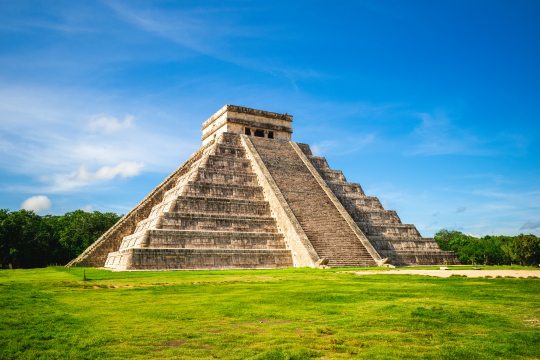EfD Central America (EfD-CA) has, since its establishment in 2007, been a driving force in promoting sustainable development and environmental research in the region. By fostering collaborations with policymakers, academic institutions, and local organizations, EfD-CA has successfully advanced evidence-based policy solutions to address critical challenges such as climate change adaptation, natural resource management, and poverty alleviation. EfD-CA is now expanding its geographic coverage to include Mexico, officially becoming EfD-CAM (Central America and Mexico).
This expansion extends EfD’s reach into a country that presents significant opportunities for impactful research and policy engagement, aligning with the initiative's mission to address pressing environmental and developmental challenges.
Mexico, as a middle-income country with significant environmental and socio-economic challenges, presents a unique opportunity for EfD’s mission:
- Trade and Migration: Mexico’s role as a key player in trade and migration dynamics, particularly to the United States and Central America, is deeply intertwined with environmental challenges. Migration, often driven by climate change and extreme weather events, highlights the critical need for sustainable and adaptive policies.
- Poverty and Inequality: Mexico has a per-capita income that is lower than that of Chile and Costa Rica, and is characterized by high levels of inequality and poverty (around 40% of Mexico’s population lives below the poverty line), underscoring the need for inclusive development strategies.
- Biodiversity and Conservation: As one of the ten most biodiverse countries in the world, Mexico provides opportunities to study topics such as payment for ecosystem services, nature-based adaptation, and conservation—areas already explored by EfD researchers in other regions.
- Global Climate Relevance: While Mexico contributes around 1.5-2% of global CO₂ emissions, its position as the world’s 12th largest emitter underscores the importance of its mitigation measures, which carry both symbolic and practical significance for global climate efforts.
EfD already has strong ties to Mexico through collaborations with policymakers, researchers, and institutions working within the country. These collaborations include projects involving CATIE, as well as partnerships facilitated by researchers from the Global Hub (GH), Resources for the Future (RFF), and the Mercator Research Institute on Global Commons and Climate Change (MCC), all of which have contributed to impactful policy engagement in areas such as sustainable land use, climate change mitigation, and conservation in Mexico.
This expansion aligns with the regional mandate of the host institution for EfD-CAM, CATIE (Tropical Agricultural Research and Higher Education Center), a leading research and education center for inclusive green development in Latin America and the Caribbean. By leveraging EfD’s and CATIE´s established presence and partnerships in the region, EfD-CAM aims to foster collaboration and deliver actionable research that addresses shared environmental and developmental challenges.
By: Roger Madrigal.
